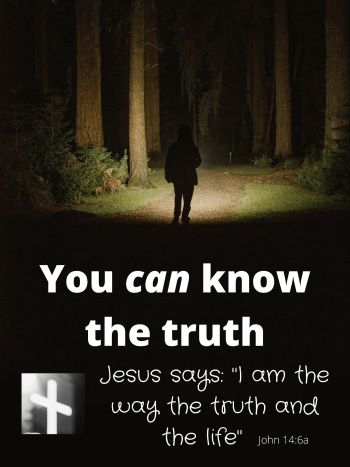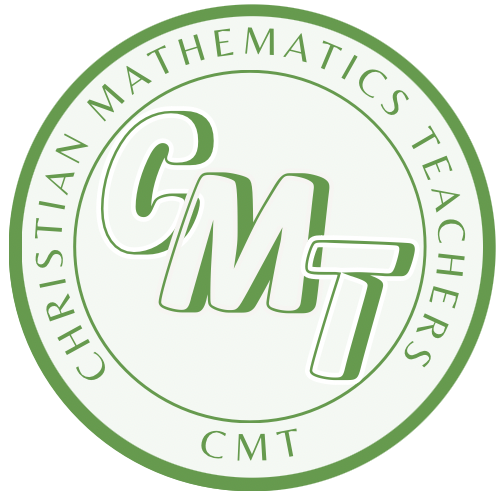God is the source of truth and Jesus is the truth.
Christians respond by worshiping God in spirit and truth. John 1:14; 4:24

Worldview
How did we (and the rest of the world) get here?
What’s our purpose for being here?
What, if anything, is wrong with the way things are now, and how did they go wrong?
How can things be fixed or made better?
A worldview gives us a framework for interpreting our experiences, and it gives guidance to our lives, both in our day-to-day activities and in our professional work.
Worldviews mould the ways we think about the students we teach and the way they learn. They direct how we think about issues even when we don’t explicitly articulate them.
We shouldn’t conceive of mathematics and Christian religion, therefore, as two companion bodies of knowledge that need to be joined in order to make our mathematics Christian. Rather, Christian faith is central and should work itself out in our mathematics (p. 23).
Read more of Jongsma’s (2007) excellent article…
Mathematics: Always Important, Never Enough – A Christian Perspective on Mathematics and Mathematics Education

What do we present as ‘truth’ without thinking about it?
What truths, half-truths, and lies do we need to bring out into the open and expose to students?
Through prayer, teachers can expose the truth claims given by the world and guide students to critically examine them against the Bible.
Some problematic “worldviews” that may be implied and absorbed by students in mathematics:
- Mathematics is “truth”; mathematical equations need to be accepted by faith.
- Statistics can be trusted.

- The textbook with consumer applications is a “normal” way to view the world.
- Human reason is glorified and is sufficient to make sense of the world and control the future.
- Mathematical learning is all about the future. The purpose of studying is to find a “good” job, which will lead to economic wealth and prosperity.
- Sadly, students may measure their self-worth by their performance in mathematics.
- Mathematical problems are ridiculous and disconnected from reality.
- Religion is private and separated from ‘school subjects’ (dualism).
- The secrets of the universe can be unlocked through mathematics.
The Christian teacher needs to expose and challenge these ideas and re-story them within a biblical epistemology (Colossians 1). For instance, God built patterns and laws into aspects of the universe that are absolute; they await revelation, and their discovery will lead to the worship of their Creator (Romans 1:20–22). Further, humans, who are made in God’s image, use and create other mathematical ideas to serve in their communities and steward God’s world. A truth that students need to be continually told and experienced.
“Don’t become so well-adjusted to your culture that you fit into it without even thinking. Instead, fix your attention on God. You’ll be changed from the inside out. Readily recognize what he wants from you, and quickly respond to it. Unlike the culture around you, always dragging you down to its level of immaturity, God brings the best out of you, develops well-formed maturity in you”
Romans 12:2 (The Message Bible)
Here are some tools to help you draw out ‘truth’ claims presented in mathematics:
-

Introductory PowerPoint: Pythagoras
While students can consider the importance of mathematics in understanding the universe, we worship the God who created these patterns and gave us numbers as a tool to worship and serve Him. Read more
-

Theme: Statistics-finding truth and applying wisdom
Jesus is the truth. However, humans have distorted truth, and we need God’s wisdom to evaluate what is truth and what is not. Technology and online statistics are important tools for us to analyse, and wisely respond to issues in… Read more
-

Discussion starters: Patterns and Algebraic Algorithms
Read: How social media algorithms are flattening culture. What decisions should be made by algorithms? What can you do about it? Read more
-

Introductory PowerPoint: Algebraic relationships – patterns and predictions
God’s built patterns into our world, bringing order out of chaos, and tasked us to do the same. Read more
-

Discussion starters: Wealth: being wise with God’s abundance (finance)
Is there anything wrong with having a lot? When is it good to have a lot? When is it bad to have a lot? Our attitude towards our money, and how we choose to spend it, displays the heart of… Read more
-

Assignment: Statistics – Finding Truth and Applying Widsom
Students investigate the correlation between hours on screen and wellness; seeking to find the truth in online reports. Read more
-

Assignment: Sampling Statistics – Truth
Students consider: Does the sample size matter? How do we know what is the truth? Read more
-

Discussion starters and reflection questions
Discussion starters and reflection questions are a key strategy to frame learning. Providing contexts around the skills learned in mathematics are a useful way to examine current issues and help students formulate responses. Read more
-

Abstract vs. concrete
“There are two versions of maths in the lives of many people: the strange and boring subject that they encounter in classrooms and an interesting set of ideas that is the maths of the world, and its curiously different and… Read more
-

A philosophy of Mathematics
A well-articulated philosophy of mathematics, such as the one above, informs teacher choices and provides meaningful contexts for learning. Why do we learn mathematics? Do you have an authentic answer? Read more
-

Theme: Statistics-Truth
Statistics are an important tool for us to analyse and respond to the needs of our communities (local, national, and international). However, we need God’s wisdom to evaluate what is truth and what is not! Humans have distorted the truth.… Read more
-

Discussion starter: Statistics-Truth
Frame learning with a ‘hook’ “Everybody is on TikTok” (or any such statement) How do you know? How could you discover the truth of this statement? How can you ever know what is truth? Read more
-

Poster: Statistics – truth
Absolute truth is knowable in the person of Jesus (John 18:37). Statistics are an important tool for us to analyse and respond to the needs of our communities (local, national, and international). However, we need God’s wisdom to evaluate what… Read more

